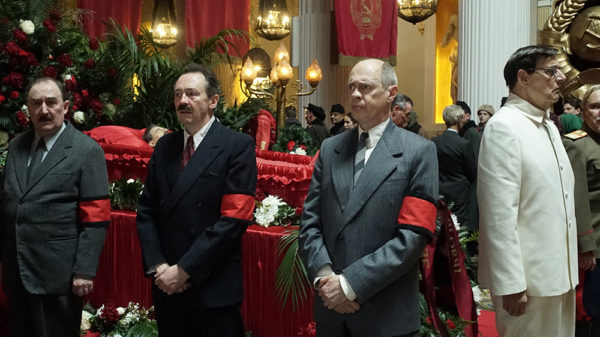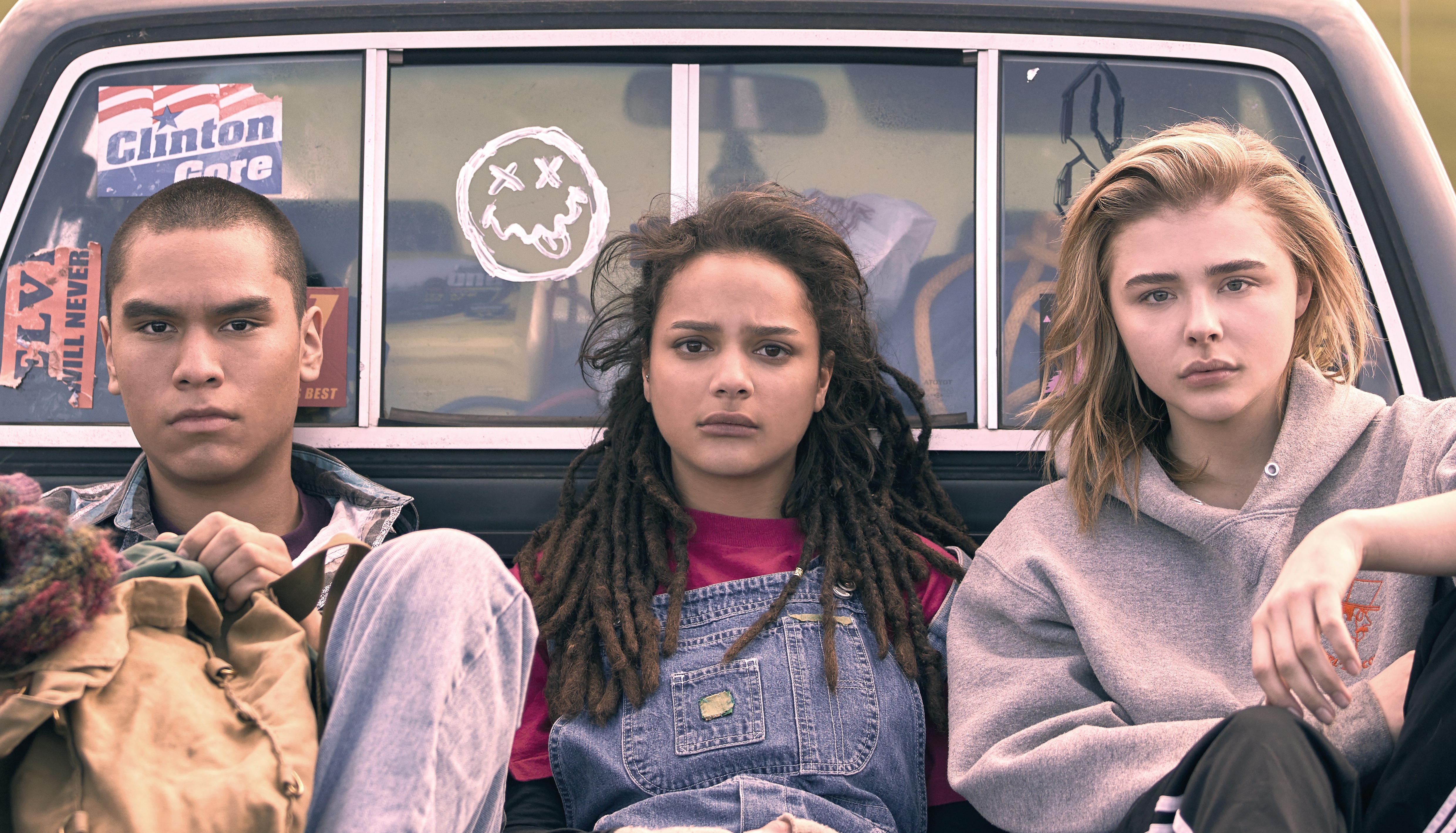This is one article in a series of Sundance coverage. Follow The Daily’s reviews of select Sundance films every day last week, extending through this week.
Finally, we’ve reached the cream of the crop — some of Sundance’s top films, which, unusually enough, essentially matched my favorite films of the festival. Or at least, these films were award-winning and critically acclaimed, for one reason or another. I’ve reviewed my top three — one a heartfelt, personal coming-of-age drama, one an innovative technological thriller and the last an exaggerated political comedy — make sure to see all of them when they’re out in theaters.

“The Miseducation of Cameron Post” — directed by Desiree Akhavan, starring Chloë Grace Moretz
“The Miseducation of Cameron Post” was the first film I saw at Sundance this year. On the last day of the festival, I finished watching “The Death of Stalin” (reviewed below!) and opened my email to discover that “Cameron Post” had won the Grand Jury Prize for the U.S. Dramatic Competition — the most prestigious of Sundance awards. In that moment, I caught myself smiling — seeing my first ever Sundance film and feeling that pure joy while reveling in a narrative so deep and personal was something I’ll never be able to erase.
“Cameron Post” is a coming-of-age drama in which the eponymous girl is caught having sex with her best friend — a girl — at prom, causing her to be sent to a gay conversion therapy camp. The majority of the film takes place at the camp — it’s not a coming out story and it’s not a queer narrative that utilizes a relationship as the forefront of the film. Like “Lizzie,” “Cameron Post” also has a serious of sex scenes; however, the latter film utilizes these as small flashbacks and memories in Cameron’s mind, bringing her back to these forbidden tender moments when she’s essentially told to “pray the gay away.” I found director Desiree Akhavan’s usage of these scenes particularly poignant, as they weren’t just a way to put in some scenes that were visually different or emotionally charged, but rather, they drove the story along and brought us back to Cameron’s longing for her friend.
Cameron’s journey at the camp is both heart-wrenching and hopeful as she’s drawn into believing she may in fact be able to pray the gay away, but is drawn back out again by the rebellious, pot-smoking friends she finds there. Nevertheless, I will say that the end of “Cameron Post” felt like somewhat of a letdown, but maybe that’s because the story felt unfinished (and sometimes, unfinished stories are the best ones). The film was based on a book by the same name by Emily Danforth, and the film only uses a small portion of the book’s actual narrative. I can’t blame the end of “Cameron Post” on that, but finding a conclusion to such a heavy narrative is undoubtedly difficult. I urge you to watch “The Miseducation of Cameron Post” when it comes out — I don’t believe it’s been picked up yet, but it’s sure to be, and it’s not a film to miss.

“Search” — directed by Aneesh Chaganty, starring John Cho and Debra Messing
Aneesh Chagangty’s “Search” won the 2018 Alfred P. Sloan Prize and the NEXT Audience Award (voted as the best film in the NEXT category, reserved for films designated as unique, nontraditional or innovative in some way) at Sundance. It’s truly deserving of both of these, and more — “Search” has the one of the best thriller plots I’ve ever seen. But that’s not the only thing that sets the film apart — “Search” is unique in that it is set through only computer screens. That is, every shot in the film is as if it’s a screen capture of David’s laptop, or his phone, or a newsfeed on a TV. I expected it to be boring, or slow, but Chaganty is able to keep the narrative pacing up and engage the audience even without dialogue.
“Search” tells the story of David Kim, a widowed Korean American father whose daughter goes missing, and he takes it upon himself to discover what happened to her with the help of police officer Rosemary (Debra Messing). “Search” had the audience audibly gasping at moments when certain points were revealed and completely unexpectedly. During the talkback after the film, director Aneesh Chaganty described how the film went through multiple rounds of intense informal focus groups, asking friends if plot twists and hints were too obvious in attempt to make the perfect thriller — and almost perfect they did. I’ll never be able to relive the moments when the plot twists came into place and the film had me thrown for an incredible loop. This film has already been picked up for Sony for theatrical release, and I’m excited to see it again when it comes out. I’ll probably watch it at least another couple times simply because the film is so rich with artifacts and little hidden easter eggs of text that you don’t catch the first time around — mini narratives in the computer screens such as conversations between David and women he’s been on dates with, conversations with his daughter, etc. I’m also glad John Cho has finally gotten a starring role in a feature — and he’s incredible in “Search.” Definitely make a point to see “Search” when it comes out — and maybe even a few more times.

“The Death of Stalin” — directed by Armando Iannucci, starring Steve Buscemi
Armando Iannucci may be best known for creating HBO’s critically acclaimed “Veep” starring Julia Louis-Dreyfus, and he keeps up his reputation as a comedic genius in the new film “The Death of Stalin.” A dramatized look at the eponymous death, the other leaders of the Soviet Union scramble to keep everybody happy as Stalin’s death leads to a power struggle amongst the bumbling men.
The comedic style of “The Death of Stalin” might not be for everyone. It’s not quite campy, but it’s over the top and reliant on deadpan delivery of the most ridiculous situations. It’s also not the same as “Veep,” but Iannucci’s trademark verbal and physical hyperbole stands out — and it works. Russia and a number of countries that were formerly part of the Soviet Union have banned “The Death of Stalin” as a mocking narrative of Stalin and the Soviet government, which is quite unprecedented. Also — special shoutout to Olga Kuryleko, who actually plays piano in the film rather than pretending to play like so many actors in other films. “The Death of Stalin” will be released in theaters on March 9 — make sure to check it out when it does.
Contact Olivia Popp at oliviapopp ‘at’ stanford.edu.
